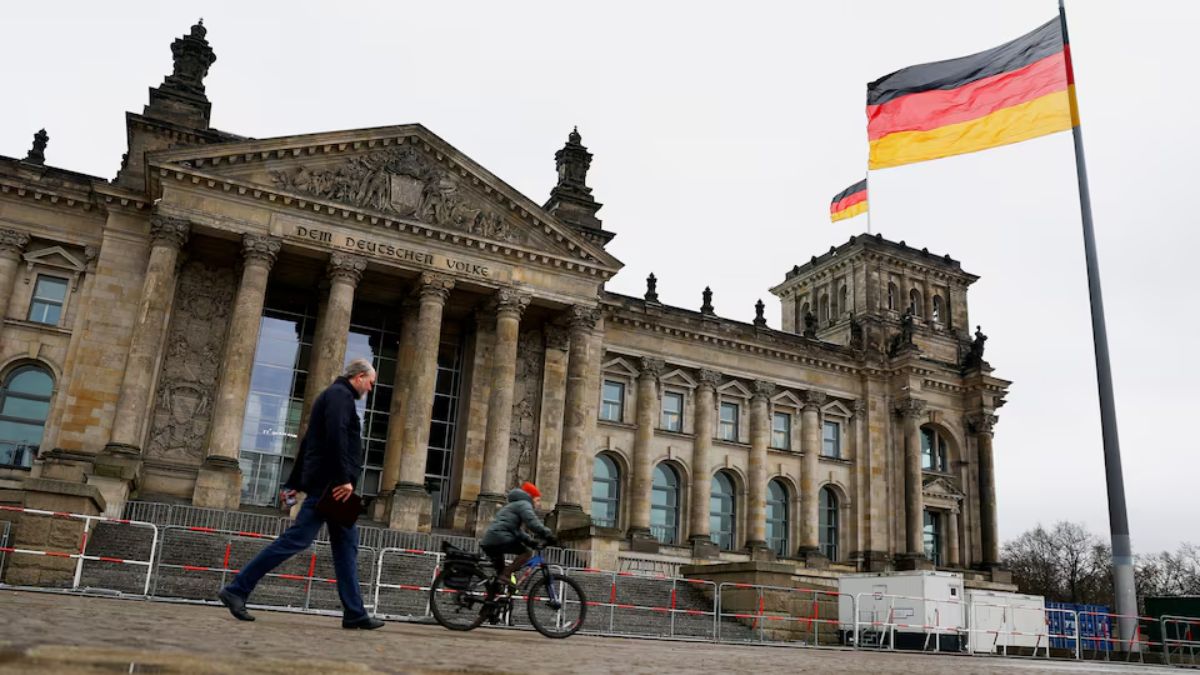Germany is gearing up for a pivotal election this Sunday, and the race for the next chancellor is heating up.
With the country facing economic challenges, geopolitical tensions, and debates over immigration and climate policies, the choice of leadership has never been more crucial.
Four major candidates have emerged, each with a distinct vision for the country’s future. From the incumbent chancellor seeking a second term to an opposition leader calling for stricter policies, a climate-conscious advocate, and a far-right challenger making waves, the competition promises to be fierce.
Here’s a closer look at the four main contenders vying for Germany’s top job.
Olaf Scholz
Olaf Scholz, the 66-year-old chancellor, has held Germany’s top office since December 2021. A member of the centre-left Social Democratic Party, Scholz brings a wealth of political experience to the role, having previously served as the mayor of Hamburg and as Germany’s labour and finance minister.
Since taking office, Scholz has had to navigate a series of unexpected crises. He launched a significant effort to modernise Germany’s military following Russia’s invasion of Ukraine and made Germany the second-largest weapons supplier to Ukraine.
His government managed to avert an energy crisis and took steps to combat soaring inflation. However, his three-party coalition faced significant challenges, often plagued by internal infighting. This discord ultimately led to the coalition’s collapse in November, as disagreements over how to revitalise Germany’s economy—Europe’s largest—dominated discussions.
Friedrich Merz
Germany’s 69-year-old opposition leader, Friedrich Merz, has emerged as the front-runner in the election race, with his centre-right Union bloc leading the polls.
Merz assumed leadership of the Christian Democratic Union (CDU) in 2021, following the departure of longtime Chancellor Angela Merkel, a former rival. Since then, he has steered the party in a more conservative direction.
During the campaign, Merz has made tackling irregular migration a central issue. However, his political experience in government is limited. Merz began his career in the European Parliament in 1989 before becoming a lawmaker in Germany in 1994. After 2009, he took a hiatus from active politics, working as a lawyer and heading the supervisory board of BlackRock’s German branch.
Robert Habeck
The 55-year-old Robert Habeck is the candidate for the environmentalist Greens party.
Currently serving as Germany’s vice chancellor and economy and climate minister, Habeck is responsible for the country’s energy issues. He co-led the Greens from 2018 to 2022, helping the party gain popularity, though, in 2021, he stepped aside to allow Annalena Baerbock — now Germany’s foreign minister — to lead the party’s first chancellor bid.
Habeck’s performance as a minister has garnered mixed reviews, particularly regarding a controversial plan to replace fossil-fuel heating systems with greener alternatives, a proposal that caused significant rifts within the government.
Also read: Massive protests erupt in 150 cities in Germany ahead of snap elections on February 23: Here's why
Alice Weidel
The 46-year-old Alice Weidel is making her first attempt at Germany’s top job as the far-right, anti-immigration candidate from the Alternative for Germany (AfD) party.
An economist by training, Weidel joined AfD shortly after its founding in 2013. She has served as co-leader of the party’s parliamentary group since 2017 when AfD first secured seats in the national legislature. In 2022, she became co-leader of the party itself, alongside Tino Chrupalla.
In December, Weidel was nominated as the party’s candidate for chancellor. Weidel has gained popularity among young voters on social media and has received endorsement from billionaire Elon Musk , however, with other political parties ruling out cooperation with the AfD, she currently has no viable path to securing the role.
With input from agencies


)

)
)
)
)
)
)
)
)



